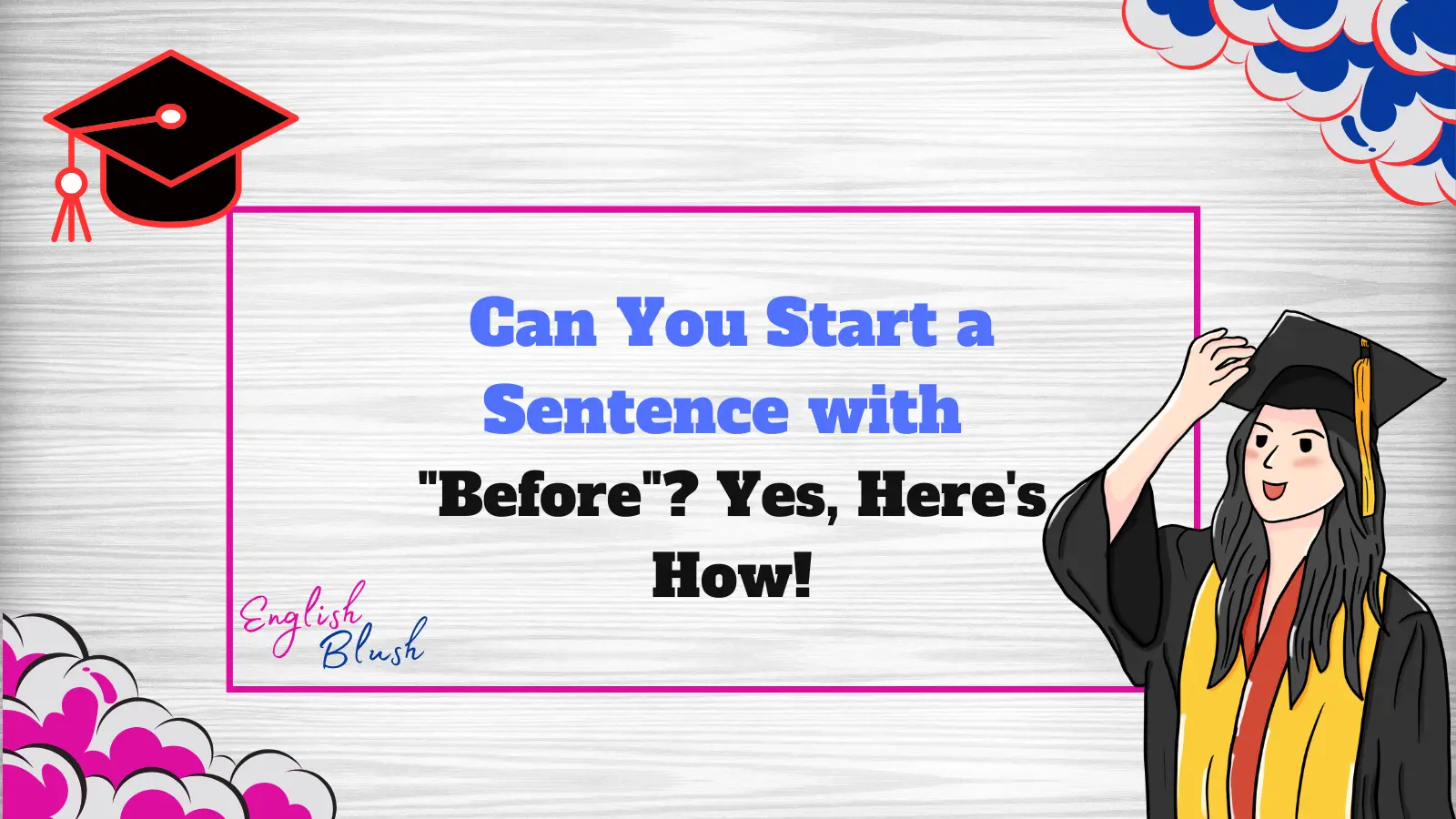Using the word before to start a sentence is perfectly fine in English. It’s a flexible word that connects ideas and sequences actions in time. In this article, we will explore how to use before at the beginning of sentences in both formal and informal contexts. We’ll also share examples and alternatives to make your writing flow better.
What Does “Before” Mean?
The word before shows when something happens in relation to something else. It often points to events or actions that took place earlier in time.
For example:
- Before he arrived, we cleaned the room.
This sentence tells us that the cleaning happened earlier than his arrival.
Starting a Sentence with “Before” in Formal Writing
In formal writing, starting a sentence with before can make your ideas clear and logical. It helps you explain sequences or conditions. However, you must make sure your sentence is complete and flows naturally.
Examples of Formal Sentences
- Before submitting the report, ensure all data is accurate.
- Before the project started, a detailed plan was approved.
- Before the meeting concluded, the team discussed future goals.
In these cases, before sets the stage for the main action. It’s helpful in academic papers, reports, and professional emails.
Starting a Sentence with “Before” in Informal Writing
In informal writing, like emails or casual blog posts, before is just as useful. You can use it to share personal stories or connect with your readers.
Examples of Informal Sentences
- Before I joined the team, I didn’t know much about coding.
- Before we left for the trip, we packed all the essentials.
- Before you try this recipe, make sure you have fresh ingredients.
Using before in this way makes your message relatable and conversational.
Tips for Writing Sentences with “Before”
To make sure your sentences work well, follow these tips:
1. Keep It Simple
Don’t overcomplicate your sentence. Starting with before should make your writing clear, not confusing.
Example:
- Before you write the essay, outline your main points.
2. Use Proper Punctuation
When you start a sentence with before, use a comma to separate the two parts.
Example:
- Before the event began, everyone found their seats.
3. Keep Your Focus
Make sure before connects two related actions or ideas.
Example:
- Before joining the gym, I researched different options.
Alternatives to Starting a Sentence with “Before”
If you find yourself using before too much, try these alternatives:
1. “Prior to”
- Prior to the event, we set up the decorations.
2. “Earlier”
- Earlier, we discussed the company’s growth.
3. “Previously”
- Previously, the report highlighted similar issues.
4. Rewrite for Variety
Instead of starting with before, you can place it in the middle.
- We decorated the house before our guests arrived.
Mistakes to Avoid
When using before, avoid these common errors:
1. Incomplete Sentences
Don’t leave your sentence hanging.
Incorrect: Before leaving the room.
Correct: Before leaving the room, she turned off the lights.
2. Overuse of “Before”
Using before too many times can make your writing repetitive.
Solution: Mix it up with alternatives or different sentence structures.
3. Lack of Clarity
Be sure your ideas are clear and related.
Incorrect: Before we ran, the weather.
Correct: Before we ran, we checked the weather.
Why Starting with “Before” Is Effective
Starting a sentence with before can add:
- Clarity: It shows the order of actions.
- Interest: It catches the reader’s attention by building anticipation.
- Variety: It makes your writing less monotonous.
Using before the right way improves your writing, whether you’re crafting an essay, email, or story.
Practice Using “Before”
Here are some practice prompts to help you get better at using before:
- Write a sentence about something you do before starting work.
- Describe what happens before a big event or trip in your life.
- Create a formal sentence starting with before.
Practicing regularly will boost your confidence in writing with before.
Final Thoughts
Yes, you can start a sentence with before! It’s a great way to connect ideas and create smooth, easy-to-understand sentences. Whether you’re writing formally or informally, using before thoughtfully makes your writing shine.
If you keep your sentences clear, vary your word choice, and practice often, you’ll master the art of starting sentences with before. Give it a try today!





